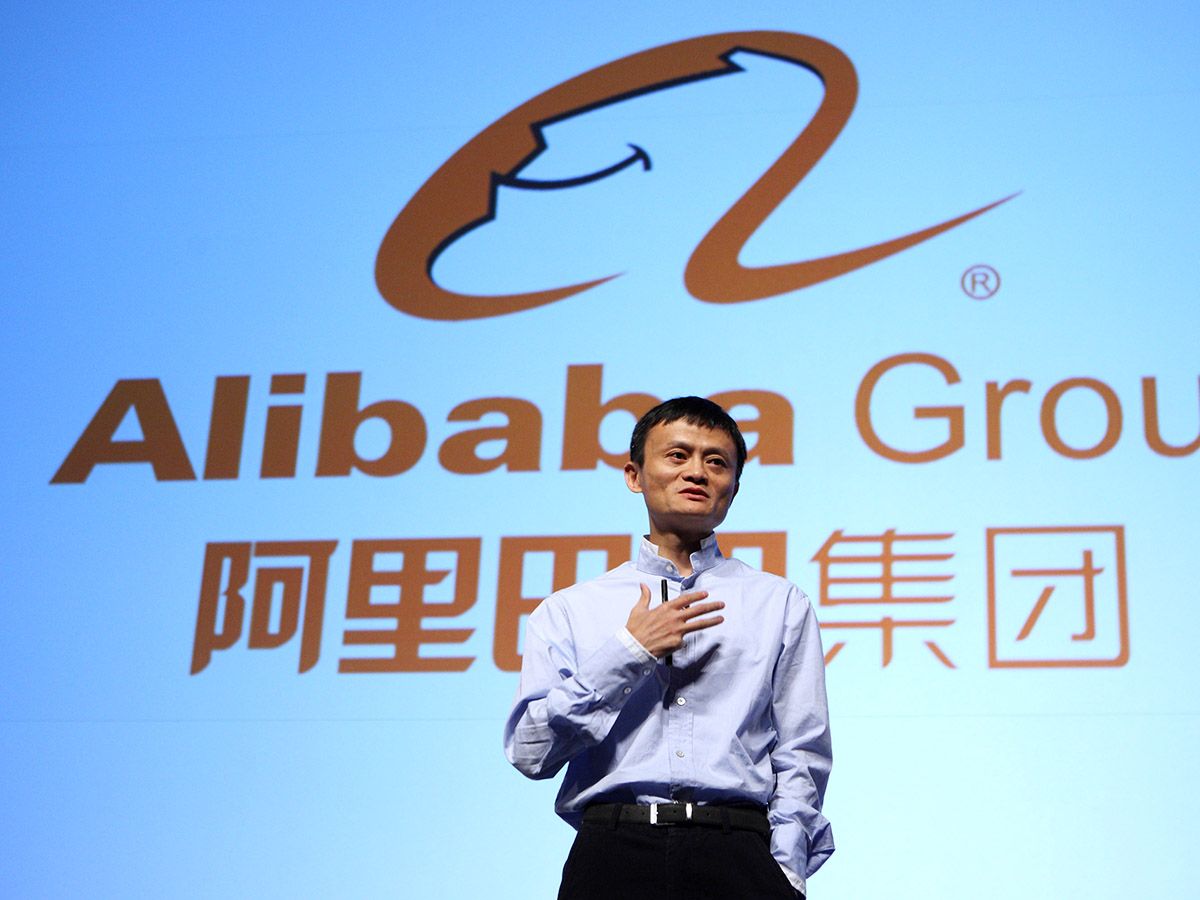Through the past 18 months, as the US-China trade war has taken its toll on stocks both sides of the Pacific, internet behemoth Alibaba [BABA] has proven why, among peers, it can lay the strongest claim to the title of “Amazon of China”.
Whereas JD.com [JD] – which, having seized a 25% share of China’s e-commerce market, is a very distant second to Alibaba’s 55% – has alternated between profit and loss for the past five quarterly results, Alibaba has gone from strength to strength. While Alibaba’s revenues for the three months to March, the latest results available, grew at their slowest rate since 2016, the company still reported a massive 39% year-on-year rise.
Like its statesde counterpart Amazon [AMZN], Alibaba has diversified into sectors beyond consumer e-commerce, which would cushion the blow should a slowdown in discretionary spending ever impact its core business. Cloud computing revenue rose 76% year-on-year, faster than the 54% growth in total core commerce. Meanwhile, the Ant Financial subsidiary, for which Alibaba doesn’t break down results, has evolved from a fintech experiment into a financial services firm rivalling the world’s largest banks in terms of assets: Tianhong Yu’e Bao, one of its flagship investment products, is the biggest money market mutual fund on earth.
76%
Revenue growth of cloud computing year-on-year
Fragile stock trajectory
Yet Alibaba’s Nasdaq-quoted stock has not followed the upwards path that the company’s burgeoning fundamentals would suggest. After a lukewarm first few years of trading, the stock took off in earnest in 2017, almost doubling in price to surpass $172 through the year.
The first half of the following year was more volatile, but still positive, as the stock peaked at $210.86 on 14 June 2018. But the emerging market scare soon took hold, along with fears of a growth slowdown in China, and Alibaba was badly hit: the stock plummeted 35%, and was down to $137.07 by the end of the year.
In 2019 so far, the stock has already experienced a boom and bust cycle: shares seemed to regain their highs of a year ago as they rose 46% to a peak of $192 from the start of the year to 3 May; but, throughout the month, most of those gains were lost as the stock plummeted 23.7% to $149.26. Over the next forty days, they again recovered, and last week’s close of $169 represents a 25% year-to-date gain. Still, its P/E ratio of 60.55 is looking expensive compared to the wider industry’s average of 38.13.
| Market cap | $450.64bn |
| PE ratio (TTM) | 49.81 |
| EPS (TTM) | 3.50 |
| Quarterly Revenue Growth (YoY) | 51.00% |
Alibaba share price vitals, Yahoo Finance, 17 July 2019
Trade war prejudice?
Some investors worry that as a successful, New York-traded Chinese name, Alibaba may soon be ensnared in the trade war, once it takes the form of a capital markets war. “You’re buying risk …It’s like buying companies during litigation,” JJ Kinahan, chief market strategist at TD Ameritrade, told Benzinga in May. Meanwhile, Shannon Saccocia, chief investment officer at Boston Private, told CNBC she had reservations “betting on a singular [emerging market] name in an otherwise US portfolio.”
But these reservations are not deterring most analysts. Jerry Liu of UBS last month said a survey conducted by the firm showed that investors were “still bullish [though] slightly less so,” as they focused on growth potential of online marketplaces Taobao and Tmall (which is launching an English-language version of its website) while shrugging off long-term investment losses.
Keybanc’s Hans Chung sees soft online sales over the past few months in China as a reflection of seasonality, rather than weakening fundamentals, and expects a pick-up in the second half of this year. Loop Capital’s Rob Sanderson picked the company as his “best play” for China, writing: “Government is shifting its growth model toward consumption and away from investment … We think this insulates Alibaba from macro issues like slowing exports or trade wars.”
“Government is shifting its growth model toward consumption and away from investment … We think this insulates Alibaba from macro issues like slowing exports or trade wars” - Loop Capital’s Rob Sanderson
Should it manage to shake off the trade war discount, the stock looks set for some solid gains, based on an average price target of $220.79, a 21.4% upside from Tuesday’s $173.50 close. Additionally, traders may see some extra liquidity coming their way: Alibaba’s shareholders have approved a one-to-eight stock split, and the company is reportedly planning a $20bn secondary listing in Hong Kong.
Disclaimer Past performance is not a reliable indicator of future results.
CMC Markets is an execution-only service provider. The material (whether or not it states any opinions) is for general information purposes only, and does not take into account your personal circumstances or objectives. Nothing in this material is (or should be considered to be) financial, investment or other advice on which reliance should be placed. No opinion given in the material constitutes a recommendation by CMC Markets or the author that any particular investment, security, transaction or investment strategy is suitable for any specific person.
The material has not been prepared in accordance with legal requirements designed to promote the independence of investment research. Although we are not specifically prevented from dealing before providing this material, we do not seek to take advantage of the material prior to its dissemination.
CMC Markets does not endorse or offer opinion on the trading strategies used by the author. Their trading strategies do not guarantee any return and CMC Markets shall not be held responsible for any loss that you may incur, either directly or indirectly, arising from any investment based on any information contained herein.
*Tax treatment depends on individual circumstances and can change or may differ in a jurisdiction other than the UK.
Continue reading for FREE
- Includes free newsletter updates, unsubscribe anytime. Privacy policy





